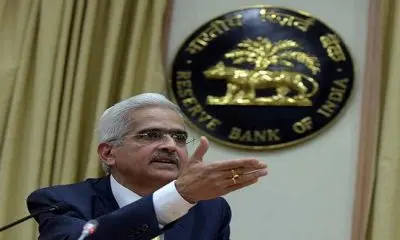Business
Digital Gig-The future of work in India
Pragya Singh.
The new world of work is at our doorstep. The past three decades have brought dramatic upheaval in work-labor-employment relations. The arrangement of regular employment relationships that emerged during the latter half of the 20th century – the idealization of full time work – is on the path to be replaced gradually by “non-standard” informal, contractual natured jobs. Although contract based works were always prevalent but accessibility to low price internet services leading to the emergence of platform based job assignments for skilled work is truly a new face of work in India.
Moreover, replacing regular employment with contract based work assignment is commonly used as a strategy that most corporations find to be more efficient and effective. According to the Employment Outlook Report, there are around 1.4 million jobs – delivery staff, drivers, maintenance workers – in Gig Economy of India.
The origin of the “Platform Economy” can be traced back to the start of the 21st century when the Internet became a new sensation – providing a plethora of opportunities for businesses to start, produce and deliver goods or services online. The advancement of Information and Communication technology (ICT) began to transform the workspace as businesses and companies began to leverage the low labor cost of developing countries. This gave birth to a new kind of outsourcing by organizations around the world via e-platforms or mobile applications, called gig work or cloud work.
How feasible is the Cashless Economy In India?
Gig Economy primarily refers to less structured work arrangements carried out through e-platforms. The importance of this expanding landscape holds even more significance in the background of increasing internet users all around the world – 47% of the world population. This has transformed the nature of jobs as well as the channel to outsource them. However, ICT outsourced jobs have positive labor externalities, biased in favour of skilled workforce.
Several terms have been devised which describe various kinds of non-permanent and contractual nature of jobs. For instance, micro work is distributing a single project or piece of work among different workers through the internet which helps to economize on costs. For instance image tagging, data entry – which usually require a freelancer to apply its creative skills. Digital, Service based & on-demand platforms that facilitate flexible work arrangements are rapidly growing across the world.
The origin of freelancing in India is not new & has advanced from a very constricted array of low skilled job options like beauticians, plumbing, tutors etc. to niche skills demanded by startups and e-platforms. Driven by the ICT advances & cheaper Internet services, gig economy has rapidly expanded its reach in India. Nearly 56% of new employment is generated by the gig world in India. The biggest advantage that the gig world offers is the flexibility of working hours. This has therefore encouraged more women to participate in the labor force. Flexibility in terms of working hours and place of work (location) were the important motivators for both men and women to enter into the Gig economy in India. They view working through digital platforms as an opportunity to generate additional income.
Here is the list of new MHA guidelines for Lockdown 2.0
There is the formulation of a social security net for gig workers in India. The recent Code on Social Security, 2019 aims to create a comprehensive code on social security of all the employees including the gig workers as well to ensure their benefits in terms of housing, pension, funds, funeral assistance etc. With the government using start-ups as engines of growth, employment in gig is on the rise and will remain high for time to come. Evolution and rise of tech-powered, contractual jobs and the accompanying theatrical workforce alteration is the forecasted future of work.

























